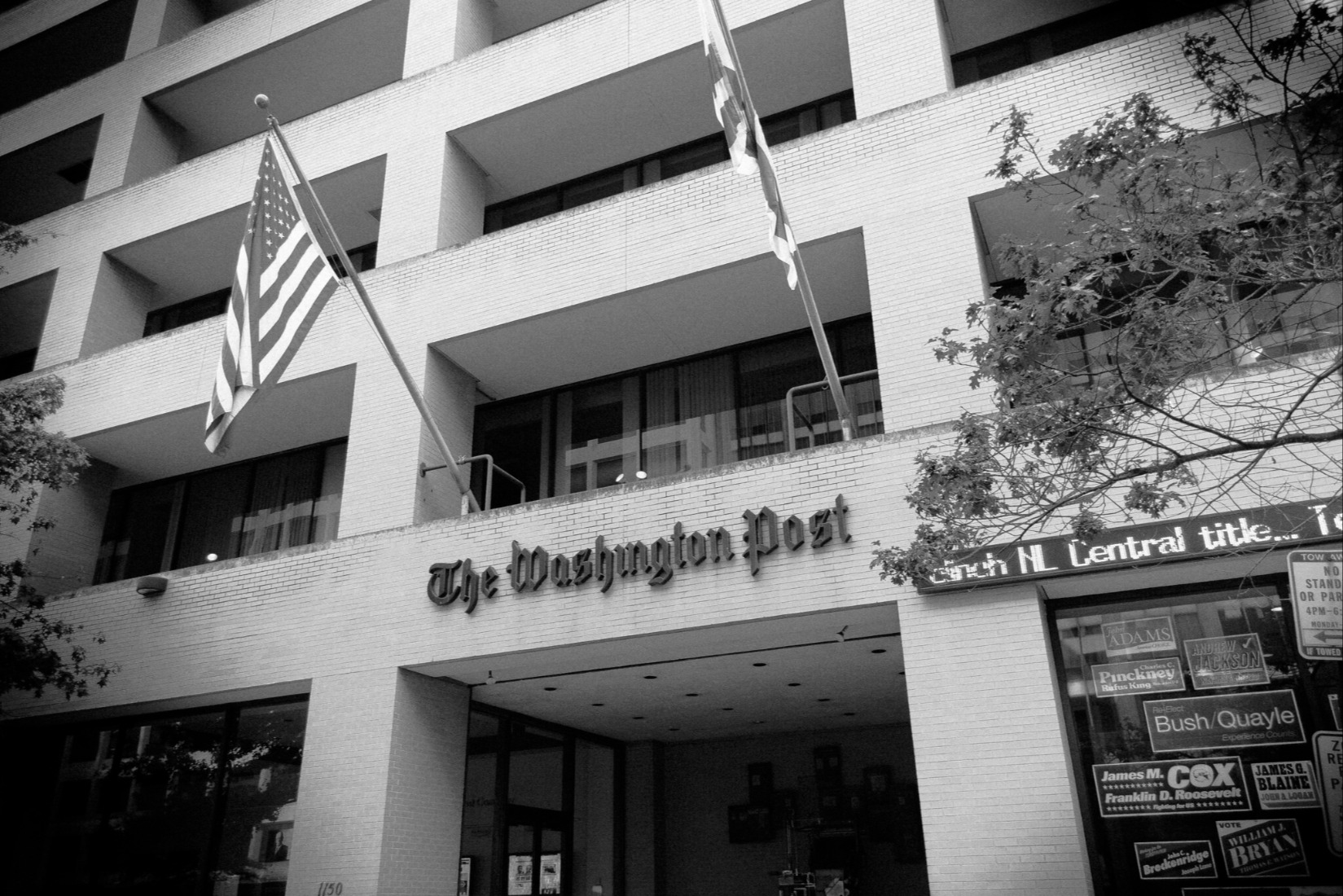How American Institutions Failed to Meet the Moment

Published by The Lawfare Institute
in Cooperation With

The Justice Department is bracing for a difficult period. President Trump, newly inaugurated, granted pardons and commutations to all Jan. 6 defendants and has repeatedly indicated his desire to turn the department into a weapon against his enemies. For her part, Pam Bondi, Trump’s nominee for attorney general, has hinted at an openness to prosecuting former Special Counsel Jack Smith over his past role in investigating Trump. As Bob Bauer writes in Lawfare and The Atlantic, Trump’s other nominees for key positions in the department likewise speak to the new president’s desire to secure personal loyalty at the cost of law enforcement independence.
Bauer also considers an essay I published early this month in the New York Times on the current state of affairs at the Justice Department, which itself draws on a great deal of thinking and debate published on Lawfare over the years. In working through what will become of the department under Trump, I argued, those who care about the rule of law will also need to think seriously about why the public cared so little about the prosecutions of the president-elect, such that criminal charges against him for his effort to overturn the 2020 election were not a deal-breaker for a significant portion of the electorate. With Trump now in office, that question is worth briefly returning to here.
There are a number of ways to view this question—but one is that the Justice Department has failed to convince Americans that the rule of law is a value worthy of public support. As Bauer notes, Trump succeeded in convincing his allies that the various criminal cases against him were partisan efforts to destroy his candidacy. But in my view, commentary on the decline of Americans’ faith in the legal system all too often ignores the cost to public confidence among those horrified by Jan. 6 and disdainful of a Justice Department that, they feel, was too slow and too hesitant to respond with adequate urgency to an attempted insurrection, such that the Jan. 6 case never came close to trial before voters headed to the polls.
In a sense, my argument in the Times is the sequel to a 2022 conversation between myself and Lawfare’s executive editor, Natalie Orpett, on one side, and our editor in chief, Benjamin Wittes, on the other, where we debated whether or not the Justice Department was moving with adequate urgency in its investigation of the ultimate culpability for Jan. 6. We were writing over a year before Special Counsel Jack Smith would announce Trump’s indictment in that case—in fact, before Smith had even been appointed. But looking back, the path that the investigation ultimately took unfortunately bears out our argument.
It’s easy to make this case in hindsight, and the Justice Department has faced a great deal of unfair criticism for its handling of the Trump investigations. And Jack Smith’s report makes clear that some of the delays were not under the department’s control—such as Trump’s successful efforts to use invocations of executive privilege to drag out the Jan. 6 grand jury investigation.
Still, based on the public record, the department had a number of junctures at which it could have chosen to move more quickly, particularly in the early stages of the investigation. Arguably, for example, investigators had enough material to begin a probe directly into Trump himself on the basis of Trump’s call to Georgia Secretary of State Brad Raffensperger demanding that Raffensperger hand the state’s electoral votes to Trump. Instead, Attorney General Merrick Garland reportedly directed investigators to start with the lower-level players and follow upward from there. Eventually, they reached the former president—but it took two and a half years.
On Jan. 16, Garland seemed to address these critiques in a farewell address, insisting on the importance of Justice Department norms of “treat[ing] like cases alike” and batting back outside criticism that the department “has allowed politics to influence its decision-making”—criticism, he noted, that “often comes from people with political views opposite from one another, each making the exact opposite points about the same set of facts.” As Wittes noted, Garland’s comments seem quietly addressed to both Republican critics who believe the department unjustly targeted Trump as well as opponents of Trump who believe the department moved too slowly and should have rushed to indict the former president right away with the explicit goal of ending his influence in American political life.
It’s not clear whether Garland was also responding to the somewhat different critique that the department was overly concerned with adherence to internal norms at the cost of losing track of the broader liberal-democratic values of which those norms are nominally in service. A Justice Department that took a broader view of what it meant to honor those traditions might have moved with more immediate urgency to bring a case against Trump to trial, in order to allow American citizens the benefit of a jury verdict regarding Trump’s culpability for Jan. 6 before they chose whether to select him to lead the country a second time.
As Bauer rightly points out, however, the Justice Department is far from the only institution whose actions “made some difference in voters’ perception of the rule-of-law values at stake in the Jan. 6 cases.” He notes, among other things, the Senate’s failure to convict Trump and bar him from office during the second impeachment and the Supreme Court’s handling of the 14th Amendment case, Trump v. Anderson. I would go further and say that these are examples of other institutions that failed to respond adequately to the magnitude of what happened on Jan. 6. The casualness with which all nine members of the Court dispatched serious arguments about the 14th Amendment’s disqualification provision, and their willingness to toss the provision aside on the basis of a manifestly unconvincing rationale, was a particularly discouraging instance of an institution abdicating its responsibilities. As Bauer writes, it may well be the case that voters, faced with extensive evidence that their government did not take Jan. 6 very seriously, decided that they need not do so either.
The first Trump administration sparked a great deal of discussion about flaws in the constitutional design—that the Constitution did not provide adequate checks in response to a demagogue. Another way of looking at things, though, is that the Constitution does provide such tools. The problem was that legal and political elites repeatedly refused to use them.
Press coverage following the election has tended to frame Trump’s victory as a populist mandate, a rejection by voters of eggheaded ideas about democracy and the rule of law. This is misleading, and not just because the margin of Trump’s victory was relatively narrow in historical terms. The political scientist Larry Bartels has argued that in most recent instances of supposed anti-democratic, populist takeovers, the incoming autocratic leader was not actually riding a wave of mass public discontent with democracy but, rather, secured office on orthogonal concerns—like economic worries or frustration with the incumbent party—before using their newfound authority to chip away at democratic institutions. The real danger to democracy, Bartels argues, is not the voters, but the political elites who fail to stop autocratic backsliding in its path. Democracy, in his phrasing, “erodes from the top.”
With this in mind, the unwillingness or inability of America’s governing institutions to make use of the available constitutional tools takes on an additional significance. It is asking too much to hope that everyday citizens will be able to, on their own, closely track the decay of democratic norms and protections and formulate well-thought-through opinions on which presidential candidate is best positioned to protect them. It may be asking too much to expect that voters will choose rationally at all. (Readers may be familiar with a paper by Bartels and his co-author Christopher Achen arguing that Woodrow Wilson lost his home state of New Jersey in his 1916 reelection campaign not because of disagreement with Wilson’s policies among the state’s residents, but because of a spate of shark attacks along the Jersey Shore.)
Rather, it is the responsibility of politicians and other powerful actors—like attorneys general and Supreme Court justices—to use their knowledge and influence to maintain the integrity of the constitutional structure. That responsibility will weigh heavier during Trump’s second term. Whether these institutions can measure up to it this time around is a different question.





